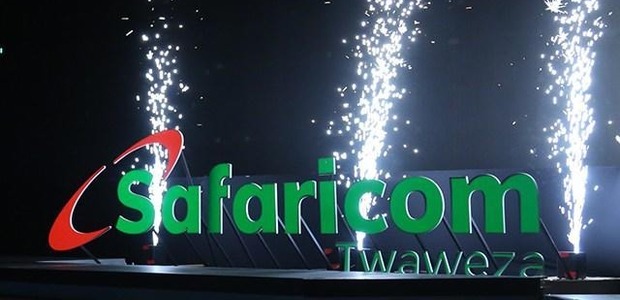advertisement
Safaricom among new signatories to the GSMA Connected Women Initiative
Safaricom is among five new Mobile Operators signatories to the Connected Women Initiative by GSMA, an initiative that seeks to…

Safaricom is among five new Mobile Operators signatories to the Connected Women Initiative by GSMA, an initiative that seeks to reduce the gender gap in mobile internet and mobile money services and unlock significant commercial and socio-economic opportunities.
The other new signatories to the Connected Women Commitment Initiative include EconetLeo, Orange Cote d’Ivoire, Telenor Pakistan and Vodacom Tanzania. The five companies join with other GSMA operator members in committing to connect millions more women in low- and middle-income countries by 2020.
The announcement was made during the ongoing GSMA Mobile 360 Africa that kicked off in Dar-es-Salaam Tanzania today.
advertisement
“The rapidly growing adoption of mobile and digital technology in Africa has unlocked new opportunities across the continent, providing a platform for innovation, creating new companies and services, and providing employment opportunities,” said Mats Granryd, Director General, GSMA. “The GSMA Mobile For Development team work closely with innovative companies to deliver a connected region where mobile is positively impacting society and helping to meet the Sustainable Development Goals – this truly is the digital age for Africa.”
By June there were already 36 commitments from 27 operators to help reduce the gender gap in mobile internet and mobile money services. Through the Connected Women Initiative, mobile operator partners have delivered life-enhancing services to more than 17 million women in developing countries, supporting SDG 5 which looks at Gender Equality.
While speaking on the initiative Claire Sibthorpe Head of the GSMA Connected Women initiative also said that the mission of the initiative was to reduce the gender gap in mobile internet and mobile money services in low- and middle-income countries and unlock significant commercial and socio-economic opportunities.
advertisement
The latest Connected Women Report launched in April 2017 themed Mapping the Mobile Money gender gap: Insights from Cote d’Ivore and Mali also shows that successfully targeting women not only advances women’s digital and financial inclusion, but unlocks significant growth potential for the mobile industry.
In fact, closing the gender gap in mobile phone ownership and usage could unlock an estimated $170 billion market opportunity for the mobile industry in the period from 2015 to 2020.
The report further showed ensuring women are financially included via mobile money has a range of benefits, not only for women themselves, but for society as a whole, and it is also good for business citing three examples that included:
advertisement
Benefits for women – Mobile money empowers women by giving them greater financial independence and strengthening their role as financial decision-makers.
Benefits for society – Mobile money supports 11 of the 17 UN Sustainable Development Goals. For example, research has shown that, in Kenya, households were able to escape extreme poverty thanks to mobile money, with consumption in female-headed households increasing twice as much as maleheaded households. Increasing women’s economic participation in the formal sector creates more efficient, productive, and transparent economies. It is estimated that digital finance, including mobile money services, could add around US$3.7 trillion in additional annual economic activity by 2025
Benefits for business – Women represent approximately 50% of the addressable mobile market in every country and ignoring this segment means missing out on an important commercial opportuni
GSMA’s Connected Women works with mobile operators and their partners to address the barriers to women accessing and using mobile internet and mobile money services. Together we can unlock this substantial market opportunity for the mobile industry, deliver significant socio-economic benefits and transform women’s lives. When women thrive, societies, businesses and economies thrive.
The initiative is currently funded by the UK Department for International Development (DFID), and supported by the GSMA and its members and The Bill and Melinda Gates Foundation also supports the GSMA Connected Women programme, funding research to better understand where along the mobile money customer journey women tend to drop off more than men and identify opportunities for addressing key gender gaps in specific markets in Africa.
Meanwhile Sudatel Group has also become the latest signatory to the GSMA Humanitarian Connectivity Charter. Launched in March 2015 the initiative seeks to support Mobile Network Operators in improving preparedness and resilience among mobile networks. The Charter consists of a set of shared principals adopted by key players in the mobile industry to support improved access to communication and information for those affected by crisis in order to red.